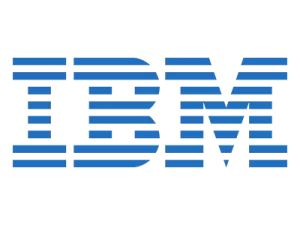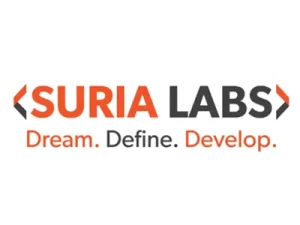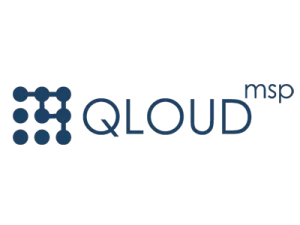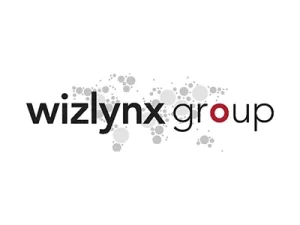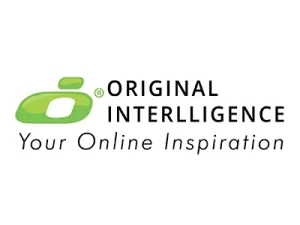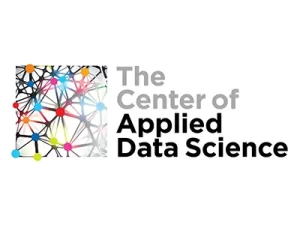As technology advances rapidly, Malaysia’s IT sector has surged, especially the top 10 IT companies in Malaysia, contributing significantly to 23.2% of the nation’s GDP.
Key trends shaping Malaysia’s IT landscape include digital technology adoption, cybersecurity, data analytics, cloud computing, and artificial intelligence. These trends align with evolving business and consumer needs, fostering investment and collaboration opportunities domestically and globally.
Additionally, the internet usage and technological advancements surge has driven Malaysia’s IT sector, leading to increased investments in online platforms, data centres, and cloud technologies.
Statistics show Malaysia’s digital transformation, with 29.55 million internet users among 32.6 million residents, reflecting an 89.6 per cent penetration rate by early 2022. This surge underscores the IT sector’s pivotal role in fueling economic growth and innovation.
Table of Contents
Significance of IT Company in Malaysia’s Economy
Malaysia is emerging as a digital hub in the Asia-Pacific and ASEAN region, with the government implementing various initiatives and policies to develop its digital infrastructure.
To bolster its competitiveness in the ASEAN region, the government is focusing on expanding broadband and 5G connectivity while also investing in data centres to support cloud computing and artificial intelligence initiatives.
The advancements in generative AI and enterprise AI solutions are also opening up new possibilities, empowering businesses to streamline operations and make informed decisions using predictive analytics and scenario mapping.
Additionally, Malaysia has forged strong partnerships with top cloud providers, attracting major players like Google, Alibaba, Microsoft, and Amazon. Telekom Malaysia Berhad (TM) expands digital services through its subsidiary Credence, supporting public sector transformation and enterprise growth.
Why These 10 IT Companies Made the List
These 10 IT companies have secured their positions on the list due to various factors. Firstly, their robust revenue and substantial market share underscore their significant impact and success in the industry. Their strong financial performance positions them as key players in the market.
Moreover, these companies stand out for their dedication to innovation and technological advancement, which is further supported by government initiatives. They maintain a competitive edge in the ever-evolving IT landscape by embracing cutting-edge technologies and fostering innovation.
Lastly, their employee-centric approach and positive workplace culture distinguish them from the rest. With favourable reviews on platforms like Glassdoor, they prioritise employee well-being and professional growth, creating an environment conducive to collaboration and excellence. This emphasis on employee satisfaction attracts top talent and contributes to their continued success.
List of Top IT Companies in Malaysia
1. IBM
IBM stands as a global leader in hybrid cloud solutions, AI, and consulting services, empowering clients across 175 countries to leverage their data insights, optimise business operations, and enhance competitiveness.
Over 4,000 entities in critical sectors like finance, telecommunications, and healthcare trust IBM’s hybrid cloud platform and Red Hat OpenShift for their digital transformations, ensuring rapid, efficient, and secure transitions.
With groundbreaking advancements in AI, quantum computing, and industry-specific cloud solutions, this IT company in Malaysia offers flexible and innovative options, underpinned by a steadfast commitment to trust, transparency, responsibility, inclusivity, and service.
2. SuriaLabs
Suria Labs, situated in the bustling MSC Cybercity of Bangsar South, is a dynamic full-stack development and consultancy firm. Specialising in crafting high-quality web and mobile applications, they leverage cutting-edge technologies like Ruby on Rails and React Native.
With a keen focus on quality assurance, this IT company in Malaysia employs test-driven development, daily code reviews, and agile project management methodologies. Their consultancy arm, boasting over a decade of experience, is in high demand among startup founders seeking to bring their ideas to life.
With a comprehensive suite of services spanning digital transformation, IT consultancy, and mobile and web development, Suria Labs is poised to transform ideas into reality, one app at a time.
3. Honeywell International Inc
Honeywell International Inc (Honeywell) operates as an engineering and technology company, specialising in inventing and manufacturing technologies to tackle challenges across various sectors, including energy, security, safety, productivity, and global urbanisation.
This IT company in Malaysia offers a diverse range of energy-efficient products and solutions, speciality chemicals, process technologies, electronic and advanced materials, productivity, sensing, safety, and security technologies, along with spare components. Additionally, it provides management and technical services, repair, overhaul, and maintenance services.
Honeywell caters to customers in the aerospace, refining and petrochemicals, buildings, and industries sectors across North America, Europe, and other regions, with manufacturing and other facilities situated worldwide. The company is headquartered in Charlotte, North Carolina, US.
4. Qloud MPS
Qloud MSP, a cloud consulting and SI company, was founded in 2011 and is based in Kuala Lumpur, Malaysia. This top IT company in Malaysia has a dedicated team that offers a range of services including cloud consulting and SI, IT managed services, cybersecurity, and unified communications consulting and SI.
With a focus on Managed Services, Cloud Computing, Cybersecurity, Data Hosting and Protection, Backup, and Disaster Recovery, Qloud MSP continuously strives to stay at the forefront of technological advancements.
Qloud MSP is driven by a passion for helping corporations leverage technology to make informed decisions, save time and costs, enhance brand image, and foster trust among customers.
5. Osiris Solutions
Another top IT company in Malaysia offering a wide range of specialised IT services, including desktop and server environments, virtualization, disaster recovery, and more.
With a commitment to long-term partnerships, Osiris provides strategic consulting based on extensive experience and forward-looking technological insights.
Their founders, with 20 years of collective technical expertise, ensure ongoing training for team members to stay updated on the latest technologies and deliver effective solutions promptly.
Offering SAP Services, IT Consulting, Support, Training, and Virtualization, Osiris helps businesses navigate the digital landscape with tailored solutions and unparalleled support.
6. Wizlynx Malaysia Sdn Bhd
As a part of the Wizlynx group based in Kuala Lumpur, it offers Information Security Services across the Asia Pacific (APAC) region, including major cities like Johor Bahru, Ipoh, and Petaling Jaya.
The Wizlynx group, a trusted Swiss cyber security provider, offers comprehensive solutions to safeguard businesses from various cyber threats. Their service portfolio covers the entire risk management lifecycle, including security assessments, penetration testing, vulnerability assessments, secure code reviews, and managed security services.
With a focus on ethical practices and reliability, they address cybercrimes such as malware outbreaks, insider threats, cyberattacks, espionage, and data breaches.
7. Winpromy Consultancy Sdn Bhd
Also known as Win-Pro, is a prominent IT company in Malaysia with over 28 years of experience serving organisations across Singapore, Johor Bahru, and Kuala Lumpur. They offer outsourced IT support, consulting, and a range of IT solutions tailored to meet the unique needs of businesses.
These services include IT infrastructure deployment, management, and support, whether on-premises or on the Cloud. Additionally, they provide comprehensive enterprise system integration solutions like UTM Firewall, Cloud Server Hosting, DNS, Web, Mail, and FTP Hosting Services.
As a fast-growing IT Managed Services Provider (MSP), Win-Pro offers proactive management, monitoring, and maintenance of IT infrastructure, ensuring seamless operations for its clients.
Furthermore, they serve as a trusted IT hardware and software vendor, delivering, deploying, and maintaining a wide range of products and services from renowned brands such as Microsoft Office 365, Kaspersky, Fortinet, QNAP, Synology, and many more.
8. Original Intelligence Sdn. Bhd.
Established in 2002, Original Intelligence Sdn. Bhd. (OI) is a trusted provider of online business solutions, serving a diverse clientele ranging from large corporations to small businesses.
Specialising in Microsoft.Net & MSSQL platforms, OI offers tailored IT services to meet individual client needs.
OI is committed to delivering high-quality solutions that leverage innovative technology and cost-effective methods. Their services include Palm Vein Biometric Time Attendance Systems, Human Resource Management, and Customer Relationship Management software, among others.
9. Quocent Sdn Bhd
Quocent Sdn Bhd offers a comprehensive range of services, including Digital Core, Digital Consulting, Artificial Intelligence and Analytics, Talent Collaboration, Cloud, 5G and Internet of Things (IoT).
In addition to its core services, Quocent offers unique products and services such as a Unique E-Commerce Platform for Passive Income, Product Development solutions, an IoT Based Access Management System, and Aircraft Manufacturing Process Management tools.
Through collaboration and a focus on customer experience, Quocent strives to provide the best solutions to meet the evolving needs of its clients and partners.
10. Center of Applied Data Science (CADS)
The Center of Applied Data Science (CADS), one of the biggest IT companies in Malaysia, is dedicated to empowering companies to become data-driven organisations through their enterprise SaaS solutions.
As pioneers in ASEAN, CADS has delivered prestigious programs such as the Harvard Business School’s Executive Program on Business Analytics and Big Data. Their collaboration with Data Incubator New York marks another milestone in bringing data science enablement to Malaysia.
Among the IT companies offering innovative products and services are Acceltic and Rubiqe, contributing to the advancement of technology and digital transformation in Malaysia and beyond.
Top IT Companies in Each Sector
Fintech Innovators
1. Boost
Boost, under the leadership of CEO Anthony Sheyantha Abeykoon, stands out as the regional full-spectrum fintech arm of Axiata.
Operating across seven Southeast Asian countries, Boost plays a pivotal role in financially empowering millions of users and merchants through its expansive fintech ecosystem. This includes an innovative all-in-one fintech app, merchant solutions, AI-based lending, and a cross-border payment platform.
At the core of Boost’s popularity is its user-friendly app, leveraging advanced technology to simplify business processes. The mobile wallet feature allows users to conveniently top up their mobile prepaid plans on the go, coupled with enticing cashback rewards.
Additionally, Boost enhances user experiences by offering digital vouchers at discounted rates from well-known brands such as Grab, Spotify, iflix, Tealive, and MyBurgerlab.
2. Touch ‘n Go
Touch ‘n Go, led by Praba Sangarajoo, is a driving force in Malaysia’s transition to a cashless society through digital transformation.
Initially known for microtransaction convenience, it has evolved into a widespread fintech solution used by over half the nation.
With innovative services like the Touch ‘n Go card, e-wallet, RFID, and more, the company simplifies financial transactions, offering secure and convenient solutions for Malaysians under Praba Sangarajoo’s leadership.
Cybersecurity Specialists
1. Qualysec
Established in 2020, Qualysec has swiftly become a trusted cybersecurity agency in Malaysia, excelling in VAPT, security consulting, and incident response services. Despite its operational office not being in Malaysia, Qualysec is a key player in the country’s cybersecurity industry, boasting a skilled team proficient in identifying and addressing vulnerabilities.
Their expert offensive specialists and security researchers utilise both human expertise and automated tools for VAPT services, providing clear findings, mitigation strategies, and post-assessment consulting, adhering to industry standards.
With a comprehensive service portfolio covering various testing aspects, Qualysec aids businesses in compliance and demonstrating commitment to security.
2. Cisco
Cisco, a prominent global cybersecurity player, has established a robust presence in Malaysia, providing an extensive range of security solutions.
They offer notable products like Cisco Firepower Threat Defense and Cisco Identity Services Engine.
The company’s esteemed reputation as a cybersecurity industry leader, coupled with its comprehensive approach to network security, positions it as a preferred choice for Malaysian enterprises seeking top-tier security solutions.
3. REDtone Telecommunication Sdn Bhd
REDtone Telecommunication Sdn Bhd, a Berjaya Corporation subsidiary, extends comprehensive cybersecurity services alongside its telecommunications portfolio.
Renowned for their managed security services, threat detection, and incident response capabilities, REDtone prioritises delivering end-to-end cybersecurity solutions. With a dedicated focus on safeguarding digital assets, the company aids Malaysian organisations in fortifying their cybersecurity defences.
In addition to telecommunications, they provide Cloud and Internet of Things (IoT) including Cloud services and applications, Data Centre and Disaster Recovery, IOT solutions such as Smart Farming, Smart Cities, and healthcare solutions.
E-commerce Giants
1. Zalora
Zalora has positioned itself as the leading and most rapidly expanding e-commerce platform in Southeast Asia (SEA), focusing primarily on fashion.
Offering a diverse range of fashion designs, predominantly from renowned brands, Zalora serves as a digital marketplace for fashion labels to reach customers online.
Founded in 2012 by Rocket Internet, Zalora operates across multiple SEA nations, including Singapore, Indonesia, Malaysia, Brunei, the Philippines, Thailand, Vietnam, Hong Kong, and Taiwan. The company generates revenue by collecting commissions from sellers for each completed sale.
2. PrestoMall
Formerly recognized as 11Street Malaysia, the platform underwent a rebranding to PrestoMall. Originating as an expansion of its parent company in Korea, established in 2008, it commenced operations in Malaysia in 2014.
Ranking as the second-largest online marketplace in the country, it currently boasts a monthly traffic of 8.40 million, catering to both consumer-to-consumer (C2C) and business-to-consumer (B2C) transactions.
Revenue generation for PrestoMall involves charging sellers a commission for each successful sale and offering sponsored ads services on the site.
3. Mudah
Founded in 2007, Mudah.my stands as Malaysia’s premier e-commerce platform, hosting a vast array of classified listings on its website.
However, Mudah does not facilitate the buying and selling process directly. Transactions occur independently between buyers and sellers outside of the website, with Mudah serving solely as a classified platform without acting as a middleman.
If you are a private seller, selling on Mudah.com.my is completely free. It offers secure and convenient features like monitoring chat messages and allowing direct sales with no hidden charges or commissions, ensuring sellers keep 100% of their earnings.
4. Lelong
Lelong was one of the early pioneers of e-commerce in Malaysia, preceding Lazada, 11Street, and Shopee. Lelong remains a prominent player in the market, consistently ranked among the top five e-commerce marketplaces.
Primarily functioning as an online marketplace (B2C), Lelong attracts significant traffic, with a current monthly visitor count of 5.47 million.
They sell a wide range of products, including food, clothing, accessories, laptops, desktops, PC parts, software, and PC accessories.
Telecommunications Leaders
1. Maxis
Maxis, established in 1995, stands out as Malaysia’s sole integrated communications service provider, leading the technological forefront in the industry.
Currently, a majority of Maxis’ customer base consists of pre-paid mobile plan users, contributing to approximately overall subscribers at a stable 5.68 million.
With a substantial market capitalisation of RM 29.61billion and assets exceeding RM 23 billion, Maxis solidifies its position as the largest telecom company in Malaysia.
2. Celcom
From a humble beginning in 1988, Celcom Axiata Berhad (Celcom) is a leading telecommunication network in Malaysia with nearly 13 million users and over 11,000 network sites covering 2G, 3G, and 4G.
Recently, Celcom embarked on a digital transformation journey by adopting Microsoft Azure to enhance its business operations.
With a focus on building internal capabilities, Celcom utilised Microsoft’s Cloud Adoption Framework for Azure, ensuring the necessary skill sets for managing infrastructure and operations on the cloud platform.
3. Time dotCom
Headquartered in Kuala Lumpur, Malaysia, Time dotCom is a telecommunications provider offering a range of services including domestic and international connectivity, data centre solutions, cloud services, and managed services tailored for Retail, Enterprise, and Wholesale markets.
At the core of our operations is a dedicated team of talented individuals leveraging innovative technologies to serve our customers and communities.
Utilising fibre optics, our fully fiberised network, anchored by the Cross Peninsular Cable System (CPCS™), provides exceptional availability, speed, and reliability to meet evolving demands.
The Future of IT in Malaysia
As part of Budget 2024‘s focus on technology and innovation, a sum of RM510 million is allocated for research and development funds, funds under the Ministry of Science, Technology and Innovation and the Ministry of Higher Education. This investment aims to propel Malaysia further towards emerging trends and technologies.
1. Cybersecurity
Malaysia is rapidly growing as a key player in Southeast Asia’s economy, particularly in the tech sector. This prosperity attracts cybercriminals seeking to exploit sensitive data and financial information.
According to a report by Malaysiakini, Malaysia faced over 4,000 cyber threats in 2022, with nearly 3,000 reported incidents to the National Cyber Coordination and Command Centre (NC4) by October 2023.
However, there are a few concerns that businesses to highlight to ensure we have a robust cybersecurity infrastructure in place:
– Growing reliance on technology: With Malaysia’s IT industry booming, various sectors increasingly depend on technology. This heightened reliance exposes them to more cyber threats, making robust cybersecurity essential.
– Lack of cybersecurity awareness: Many individuals and organisations in Malaysia lack the preparedness to fend off cyber-attacks. This unawareness makes them vulnerable targets for cybercriminals.
– Rising cybercrime sophistication: Globally, cybercrime is evolving, and Malaysia is not immune. Cyber threats like ransomware, phishing, and malware attacks are growing more common and sophisticated.
– Regulatory compliance requirements: Numerous Malaysian industries must adhere to regulatory standards mandating cybersecurity measures. Non-compliance may lead to substantial fines and legal consequences.
2. AI, Automation, RPA
Artificial intelligence (AI), automation, and robotic process automation (RPA) are making a big impact on IT companies in Malaysia. Many sectors like manufacturing, banking, healthcare, logistics, and telecommunications are adopting these technologies to improve how they operate.
The government is also supporting the use of these technologies, recognising the benefits they bring to Malaysia’s business world.
Here are some ways industries in Malaysia can benefit from AI:
– Better Healthcare: AI can improve healthcare by using smart tools for diagnosis, telemedicine, and predicting health outcomes, making it better for patients and more cost-effective.
– Enhanced Financial Services: AI helps catch fraudulent activities, make credit assessments quicker, and give personalised financial advice. This is good for the banking and financial services industry in Malaysia.
– Improved Manufacturing: AI has the potential to boost the global economy and increase GDP. In Malaysia, it can optimise manufacturing processes, reduce waste, and make production more efficient in industries like electronics, automotive, and semiconductors.
– Efficient Logistics and Supply Chain: AI can make transportation routes better, predict what customers will need, and manage inventory. This means logistics and supply chain companies in Malaysia can save money and work more efficiently.
3. Cloud Computing
Cloud computing is like having your computer services on the internet. It lets you access things like storage, processing, and applications whenever you need them, using any device with an internet connection.
Let’s take a quick look at why this shift happened and why it’s here to stay.
– Scalability:
- Cloud computing can easily adjust to a business’s changing needs.
- Example: If a business needs more or fewer computer services, they can quickly make those changes. They only pay for what they use, avoiding unnecessary costs.
– Accessibility:
- You can use computing services from anywhere at any time with an internet connection.
- Example: Businesses can work with remote employees, access data and applications from different places, and offer on-demand services to customers.
– Cost Benefits:
- Running your business on the cloud simplifies IT management.
- Example: Instead of buying and maintaining in-house hardware, businesses can outsource their computing needs to a provider. This avoids upfront costs and covers ongoing management tasks like security and updates, freeing up businesses to focus on their main operations.
Navigating Job Opportunities in IT
According to a JobStreet report, most industries in Malaysia have stable median incomes in 2023, indicating a steady job market. The computer/IT sector, driven by the government’s digital transformation emphasis, experiences a significant median pay increase of 28.0%, making it Malaysia’s fastest-growing field.
Despite job ads remaining largely unchanged, the IT industry sees a notable surge in median wages, reaching RM4,800, making it the highest-paying specialisation at RM6,000. The tech industry is thriving, whether you’re a programmer, software engineer, or IT specialist, tech jobs are abundant which is creating a high demand for professionals.
Key Skills and Qualifications for IT Roles
To excel in securing IT roles in a top IT company in Malaysia, here’s a summarised table highlighting key technical skills you need to master:
| Skill Area | Skills to Master |
| 1. Cybersecurity | Ethical hacking, intrusion detection, malware analysis, security compliance. |
| 2. Data Analytics and Big Data | Data mining, statistical analysis, tools like Hadoop, R, Python. |
| 3. Cloud Computing | Cloud migration, cloud security, cloud-native app development, platform-specific certifications. |
| 4. AI and Machine Learning (ML) | Algorithms, neural networks, TensorFlow, natural language processing. |
| 5. Software Development | Languages & Frameworks: Java, Python, JavaScript, C#, PHP, Swift, React, Angular. |
| Web vs. Mobile: Emphasis on mobile app development (Flutter, React Native), DevOps, Microservices. | |
| 6. IoT | Embedded systems, IoT security, network and communication protocols. |
| 7. Blockchain Technology | Cryptography, smart contract development, platforms like Ethereum. |
| 8. Digital Marketing | SEO, SEM, content marketing, social media strategy, analytics tools, SEO for E-commerce, PPC, Email Marketing, Affiliate Marketing & Partnerships, Social Commerce. |
| 9.Project Management in IT | IT project lifecycle, Agile and Scrum methodologies, risk management. |
| Agile & Scrum, Risk Management, Resource Allocation & Budgeting, Stakeholder Communication, Documentation & Compliance. | |
| 10. UI/UX Design | Research, Prototyping & Wireframing (Figma, Adobe XD, Sketch), Graphics & Visual Design (Adobe Illustrator, Photoshop), Interactivity and Animation (After Effects, web-based animation libraries), Testing & Feedback. |
How to Stand Out in the IT Job Market?
In the current job market, there is a heightened demand for tech professionals in the top 10 IT companies in Malaysia, especially with companies transitioning to digital business models.
Here are some valuable insights from multiple sources such as Robert Walters and Forbes, on how to stand out in the competitive landscape when applying for tech roles:
1. Clear Skill Presentation
- Place your skills and certifications prominently at the top of your CV to quickly grab attention.
- Highlight the most valuable and relevant skills for the specific job you’re applying for.
2. Specialisation Matters
- Avoid being a generalist; emphasise your specialisation within your field, whether in DevOps or Cyber Security.
- Clearly define your expertise, showcasing what you excel at within your chosen area.
3. Showcase Work on GitHub or Stack Overflow
- Keep your GitHub or Stack Overflow portfolios updated, especially for developers.
- Recruiters and hiring managers often review these platforms to gauge your practical experience and project work.
4. Emphasise Soft Skills
- Soft skills like problem-solving, adaptability, and learning ability are crucial.
- Ensure these skills are evident in your CV and during interviews to enhance your chances of success.
5. Networking and LinkedIn Presence
- Build an active network on LinkedIn by following industry professionals and engaging in discussions.
- Address tech problems shared by your network, offering solutions to showcase market understanding.
6. Upskilling for Experience
- If you lack experience, focus on upskilling in your specialisation.
- Utilise platforms like FutureLearn and LinkedIn Learning for free online courses.
- Engage in self-initiated projects, sharing them on LinkedIn and relevant tech platforms to demonstrate practical knowledge.
In-Demand IT Jobs for 2024 and Beyond
As we approach 2024, many top IT companies in Malaysia are focused on recruiting for roles in cloud computing, DevOps, digital transformation, security and privacy, development, AI, automation, system upgrades, and data integration and analytics, as highlighted in Robert Half Technology’s 2024 IT salary report.
Here are some upcoming job titles in the IT field to keep an eye on:
| Technology Industry | Popular Job Titles for Talent |
| Artificial Intelligence and Machine Learning | Machine Learning Engineer, Data Scientist, AI Research Scientist, Computer Vision Engineer, AI Product Manager, Robotics Engineer, AI Solutions Architect, AI Consultant |
| Cyber Security | Cyber Security Analyst, Cyber Security Engineer, Malware Analyst, Security Architect, Information Security Manager, Incident Responder, Cyber Security Consultant, Cryptographer, Network Security Engineer, Compliance Manager |
| Cloud Computing | Cloud Engineer, Software Engineer, Solutions Architect, Chief Technology Officer, Cloud Architect, Dev Ops Engineer, System Engineer |
| Data Science | Data Scientist, Data Analyst, Data Engineer, Machine Learning Engineer, Research Assistant, Data Science Manager, Data Specialist |
Many IT professionals start in versatile roles, such as help desk technician or IT associate, addressing a variety of issues. While not always mandatory, acquiring an entry-level IT certification can enhance your chances of securing such roles.
As you accumulate experience and identify your preferences, you may consider specialising in a particular area. Explore entry-level IT positions to discover potential career paths, each with its unique progression.
Different roles come with unique progression paths—check them out here!
Continuous Learning and Certification in IT
Before delving into job applications in top IT companies in Malaysia, consider exploring self-study options to familiarise yourself with fundamental computer concepts. Online platforms like edX offer free computer science MOOCs from renowned universities, providing a solid foundation.
After acquiring essential skills through self-education, pursuing certifications in areas such as hardware, security, or network architecture can validate your expertise.
If you’re seeking certifications to acquire specific knowledge for a particular IT role in one of the biggest IT company in Malaysia, here are some credentials that have garnered strong recognition:
- CISSP – Certified Information Systems Security Professional ($156,699 per year average salary)
- AWS Certified Solutions Architect – Associate ($160,052)
- Google Cloud – Professional Cloud Database Engineer ($163,193)
- Google Cloud – Associate Cloud Engineer ($161,075)
- AWS Certified Solutions Architect – Professional ($174,137)
- PMP: Project Management Professional ($176,116)
- Google Cloud – Professional Cloud Architect ($200,960)
Conclusion
In conclusion, navigating the ever-growing significance of the IT companies in Malaysia requires us to stay abreast of emerging technologies, master in-demand skills, and adapt to evolving job roles. As businesses prioritise digital transformation, opportunities abound for professionals in cloud computing, cybersecurity, AI, and other technology domains.
Whether you aspire to join the ranks of the top 10 IT companies in Malaysia or seek to become a key player in this thriving sector, continuous learning and strategic career choices will position you for success in this rapidly advancing field.
Additionally, exploring the profiles of top multinational companies operating in Malaysia, as outlined in our “Top Multinational (MNC) Company in Malaysia” article, can offer valuable insights into the diverse career paths and international opportunities available within this dynamic sector.

